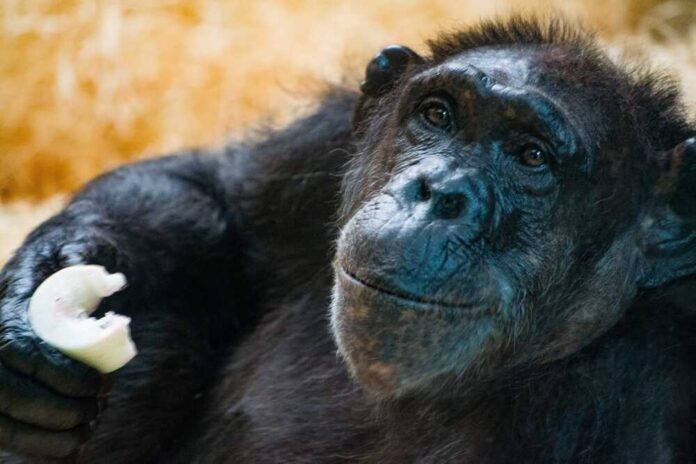Experts say that chimpanzees consume plants with antibacterial and pain-relieving characteristics to help themselves.
To determine whether animals in the Ugandan woodlands were using plants as a kind of self-medication, they detailed their investigative work in monitoring creatures that seemed wounded or ill.
The researchers took samples of the plant that the wounded animals had been searching for in the forest and had it tested. It was discovered that the majority of the plants examined had antibacterial characteristics. The researchers believe the chimpanzees might potentially aid in the hunt for novel medications.
Dr. Elodie Freymann of the University of Oxford, who was leading the study, said that it would be impractical to evaluate every forest for its therapeutic qualities. Therefore, they put the vegetation that the primates were pursuing to the test.
Dr. Freymann has meticulously tracked and studied two groups of free-ranging chimpanzees in the Budongo Central Forest Reserve.
In addition to observing the animal for any indications of distress, such as limping or strange postural changes, her group diligently gathered samples of urine and excrement to diagnose potential diseases and infections. When a sick or wounded chimpanzee searched for an unusual food source, they paid close attention. She remembered a male chimpanzee with a severely injured hand that went in search of a specific type of fern to eat.
The Christella parasitica fern, which the researchers gathered and studied, has strong anti-inflammatory characteristics. Research has shown that Christella parasitica extracts can inhibit the growth of several harmful bacteria.
African traditional healers utilize the plant to alleviate a wide range of symptoms, from asthma and snakebites to bacterial infections and gastrointestinal problems.
Dr. Fabien Schultz of Germany’s Neubrandenburg University was the recipient of seventeen samples from thirteen distinct plant species that the researchers had gathered.
Almost 90% of the extracts were found to limit bacterial development, and one-third had natural anti-inflammatory characteristics, suggesting they might alleviate pain and speed up the healing process.
Dr. Freymann reported that all of the sick and wounded chimpanzees included in the research made a complete recovery. She went on to say that the one who consumed ferns quickly used his hand again.
Although there is no conclusive evidence linking these instances to the use of these plants, the study does show that studying wild species may teach about medicine and emphasize how important it is to protect these “pharmacies.”


















